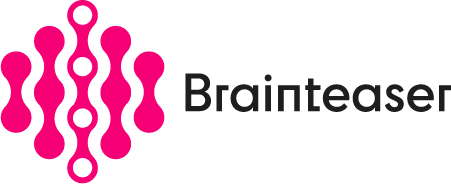
Hospital Universitario Gregorio Marañón/SERMAS-Madrid
Gregorio Marañón University Hospital (Hospital Universitario Gregorio Marañón) belongs to Servicio Madrileño de Salud: SERMAS (Madrid Health Service), and stands out for the high training and qualification of its professionals, for its teaching and research capacity and for its technological endowment, being a national and international reference in various specialties.
Patients involved in the study
The BRAINTEASER study successfully recruited 70 MS and 42 ALS patients. The majority of the patients have participated for more than 24 months in the project. No additional recruitment is planned. The focus remains on monitoring these participants to gather meaningful data and evaluate the project’s impact.
Key takeaways from the BRAINTEASER observational study
The study highlighted that remote monitoring can enhance accessibility to health care, reduce burden and provide rapid and easy assessment for patients. It also highlighted several challenges and areas for improvement. Both the app and Atmotube devices frequently experienced errors or malfunctions, with the Atmotube, a small device that measures pollution and environmental conditions, often regarded as inconvenient and inconsistently used by patients. Data entry within the clinical tool was found to be inefficient, with much of the data being repetitive across visits. Streamlining this process by extracting information from prior visits could significantly reduce clinicians’ workload. Clinicians also noted the value of having a global overview of patient data, particularly questionnaire results, to better understand the patients’ progress. However, no major changes or disease progression were observed in the patients recruited for the study.
Patient and caregiver perspectives on the BRAINTEASER model
Patient feedback on the BRAINTEASER model was mixed. The average participation and adherence were good. As the disease progressed adherence got worse and caregiver burden was higher. The patients also experience adverse events such as allergic reactions to the smartwatch strap and sleep disturbances due to sensors’ light. Regarding benefits, it is worth mentioning enhanced communication with the medical team, access to educational content and maybe positive changes in habits, highlighting environmental contamination awareness.
While the Garmin watch was well-received as a useful device, the Atmotube was often described as bulky and inconvenient, leading to inconsistent use. The app was generally perceived as unintrusive, but its functionality was limited. Patients primarily used it to complete questionnaires, as other features were either bugged or not fully implemented. Complaints about the app’s reliability, such as failing to send questionnaires, were common. Additionally, the frequency of visits, scheduled every three months, was considered burdensome by some patients, with suggestions to incorporate online visits for cases where physical assessments like the EDSS were unnecessary.
Future plans for BRAINTEASER
The potential for these interventions in clinical practice will largely depend on the quality and reliability of the data collected. At this stage, it remains uncertain how useful the tools will be in a clinical setting without addressing the current challenges and ensuring consistent, high-quality data output. Future improvements will focus on overcoming these barriers to enhance the practicality and effectiveness of these interventions.
It is important to find a reliable manner to analyze the data that we have obtained from remote monitoring and clinical evaluations. Developing AI models to predict ALS progression can facilitate clinicians’ work. On the other hand, finding correlation between environmental contamination and ALS can help to get a better knowledge about the pathophysiology of the disease which is essential for developing an effective treatment.
